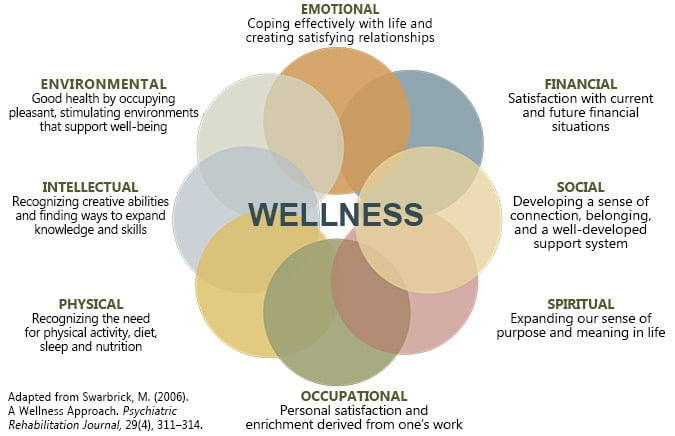Emotional, Spiritual, & Social Wellbeing: Part 5 in the 6-Part Series
Workplace wellness programs are on the rise across the country, and employers and employees alike are seeing the benefits. But for all the progress that has been made, there are still areas that need more attention. Wellness programs today still put much of the focus on physical health. There are so many programs that encourage healthy eating, active lifestyles, and overall fitness. But what about emotional, spiritual, and social wellbeing?
The consensus is that there are eight dimensions of wellness: Physical, emotional, social, spiritual, intellectual, financial, environmental, and occupational. Physical wellness gets plenty of attention, but wellness programs need to include the other aspects as well.
How can your company foster emotional, spiritual, and social wellbeing? Here are some tips on how to take on a more holistic approach and tackle the issues that so often go unnoticed.
Reduce Employee Stress
Stress is pervasive in the workplace, and most people struggle with it on a daily basis. Stress can affect emotional wellbeing, but it can also lead to physical health issues. According to a recent survey of corporate health and wellbeing, 54% of large employers already offer stress management programs, and an additional 12% hope to do so by 2017.
Meditation is a great way take control of your thoughts and re-center yourself when life gets too chaotic. Meditation can help manage stress, reduce negative emotions, and increase self-awareness. You will need a quiet, comfortable setting and be ready to focus your attention.
Yoga is another activity that can be calming. It is often combined with meditation and a concentration on breathing and balance. In addition to reducing stress, it also helps build physical fitness.
Provide Support for Mental Health
One in four Americans experience mental illness every year. And because mental illness has no boundaries, it inevitably affects employees’ ability to work efficiently. A recent survey revealed that 31% of respondents consider mental illness “the number one cause of lost productivity, increased absenteeism, and other indirect costs.”
It is important to provide wellness programs and resources for mental health. As Clare Miller, director of partnership for Workplace Mental Health at American Psychiatric Foundation, stated, “There’s a lot of stigma about mental health and reaching out. If you are an employer and are educating the employees about mental health, you are really sending out that message that it’s okay to reach out for help.”
Assist With Financial Wellbeing
Finances are among the most stressful aspects of everyday life, and it is important to foster financial wellness. The Society for Human Resource Management reports that 44% of millennial workers say they want their employers to help them address their financial concerns, compared to only 20% of baby boomers.
Luckily, SHRM explains, “To help employees manage their financial well-being, almost three-quarters (73 percent) of companies surveyed offer onsite financial seminars, and 59 percent make a financial coach available to employees.” Likewise, student loan repayment assistance is being offered by 13% of companies, and another 21% of responders want to add it in the future.
Get Employees Socially Involved
Many new wellness programs aim to get employees more socially involved, and this is important for ensuring social health. Regardless of employees’ personal relationships outside of work, it is important that they feel comfortable and accepted in the workplace. When a workplace doesn’t foster positive working relationships, employees can become more stressed and suffer worse emotional wellness.
In addition to providing programs that nurture emotional and mental health, make sure that all employees feel included. Try to incorporate activities that foster sociability and reinforce positive relationships. Even fun contests and competitions can help promote social health.
There are many aspects to wellness beyond just physical fitness. Look at your corporation and determine whether you are fostering emotional, spiritual, and social wellbeing. Incorporating these dimensions of wellness will add to your company’s culture of health, creating stronger loyalty among employees and better corporate health.



